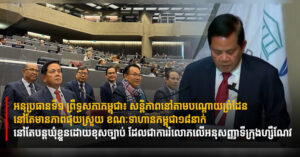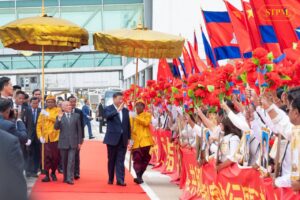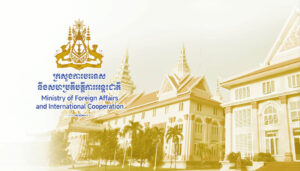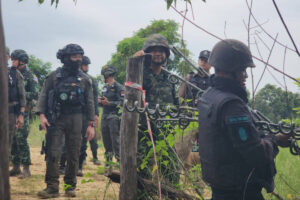CMAC chief refutes Thai allegation of new landmines, says blast site lies within Cambodian territory
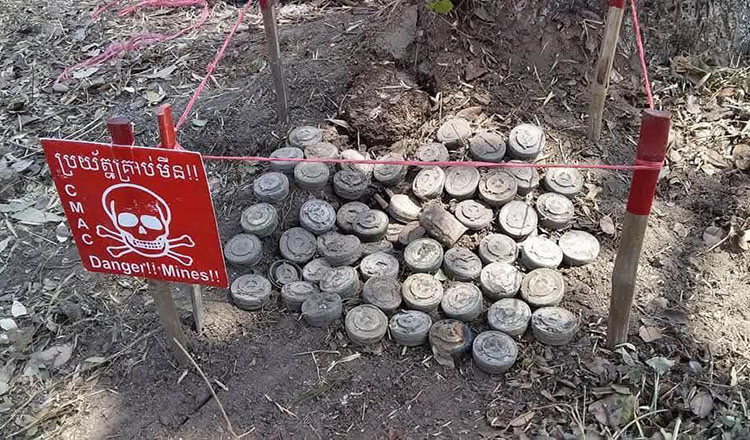 CMAC chief refutes Thai allegation of new landmines, says blast site lies within Cambodian territory
CMAC chief refutes Thai allegation of new landmines, says blast site lies within Cambodian territory
Khmer Times | Heng Ratana, Director-General of the Cambodian Mine Action Centre (CMAC), has issued a strong rebuttal to claims by Thailand that Cambodia is using newly deployed anti-personnel landmines, following a landmine incident that seriously injured a Thai soldier near the two countries’ disputed border last week.
Citing a July 21 statement by the Ministry of Foreign Affairs and International Cooperation (MFAIC), Ratana emphasised that the explosion, which occurred on July 16, took place “well within Cambodian territory” in a minefield that remains uncleared.
“This incident occurred in minefield BS/CMAA/16808, located in Techomorokot village, Morokot commune, Choam Ksan district of Preah Vihear province,” Ratana explained. “This minefield is clearly documented and has not yet been demined.”
The explosion left a Thai soldier with an amputated ankle, prompting accusations from Bangkok that a new Russian-made PMN-2 mine—allegedly recently laid by Cambodian forces—was responsible.
However, Ratana strongly rejected this assertion, pointing instead to the likely cause being old, low-yield landmines left over from past conflicts. “Based on the injury pattern, it is highly probable that the blast was caused by older types of landmines with low explosive content—such as 72A, 72B, M14, MN79, or MD82B. These contain only around 30 grams of explosive,” he said.
He added that if a PMN-2 mine, which contains approximately 115 grams of explosive, had been the cause, the soldier would have lost both legs or died on the spot. “There have been numerous recorded cases in Cambodia where victims of PMN-2 mines suffered far more devastating injuries.”
The CMAC chief also reiterated that hundreds of kilometres of the Cambodia-Thailand border region, which lies within Cambodian territory, are still littered with landmines and unexploded ordnance (UXO). “These areas have not yet been cleared due to Cambodia’s focus on prioritising clearance efforts in zones that directly impact civilian safety and socio-economic development,” he said.
The Cambodian government has firmly denied any deployment of new landmines in the area and has reaffirmed its commitment to the Anti-Personnel Mine Ban Convention, which it ratified in 1999.
“We continue to work tirelessly to remove the deadly legacy of war,” Ratana said, “and we will not accept baseless accusations that jeopardise regional peace and undermine decades of humanitarian demining efforts.”


